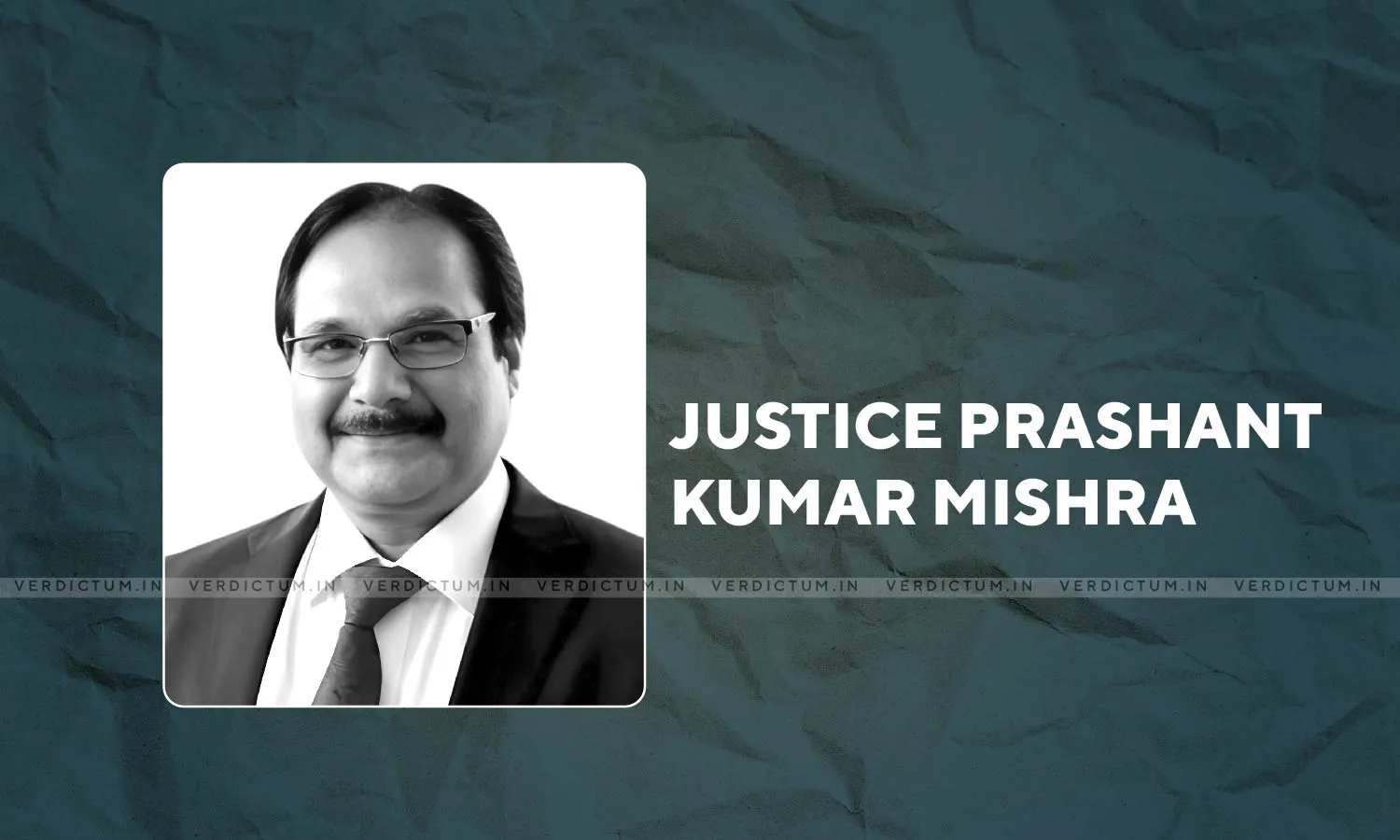Right To Get Judgment In One’s Own Language Is Part Of Natural Justice: Justice Prashant Kumar Mishra

Justice Prashant Kumar Mishra of the Supreme Court recently said while speaking at an event that the right to understand a judgement in one’s own language is a part of the Principles of Natural Justice. He emphasized that it is not just about Hindi, but all the languages spoken in the country. He was speaking at an event on the subject "Indian languages in the field of law and justice", held in Delhi on Wednesday.
Justice Mishra said that it is unfortunate that we have to promote our own language in our country. He shared that he was a Hindi medium student in school but had to shift to an English medium to pursue higher studies as it is believed that unless one studies in a foreign language, one cannot be successful in life. He said that it is important to negate this belief.
He shared his experience from the Supreme Court when a three-judge Bench was hearing a Criminal Appeal and came across a translated witness testimony. The Court, after looking at the testimony, doubted whether it was actually said by the witness, and called for the original records which contained the original testimony in Hindi. The Court was shocked to find that the translation in English was completely different from the original testimony. "If the right to information and right to understand and right to express are fundamental rights, the right to read and understand is a principle of natural justice. These two cannot be separated. If a litigant cannot understand why he won or lost a case, such a decision is meaningless and it is a facet of natural justice", the Judge said.
The Chief Guest speaker of the event Justice Sanjay Karol started by saying that there cannot be two opinions on the fact that languages mentioned in Part XVII and Schedule 8 of the Constitution of India should be used.
He shared his experience of the time when he was a judge in Bihar and a lawyer requested him to hear his petition in Hindi, but he refused. He said that almost a year later, he realized the error, expressed remorse and atoned for his act. After which, as the Chief Justice of Bihar High Court, he allowed lawyers to argue in Hindi.
He said, “We have to speak the language of justice, love and character”. He emphasized that the thinking of our legislators and Constitutional Courts should not be "metro-centric". He said, “India’s justice system is not just for Delhi, Mumbai or Madras, but for all the regions.”
He pointed out that everyone says that Courts should not use English but the foundation of it all is Legal Education, which continues to be in English. He asked, “If NLUs and law schools are not teaching in Hindi, Sanskrit or local languages, then how will it be possible for students to use those languages in the future?”
He concluded by saying that one should also keep in mind that even people who can’t hear and speak also have a language. He expressed his wish to learn their language if anyone helped him out.
Justice Rekha Palli of the Delhi High Court also spoke at the event and pointed out that around 200 languages are about to become extinct, and said that we need to take timely action to tackle the problem. She also pointed out that sometimes common man fears approaching the Courts due to the language barrier.
She said that “if there is a language that is not understood by the affected person and a verdict is given in that language, it is like a prescription written by the Doctor, which is understood by the pharmacist but not the patient.”
She emphasized, “With changing times and circumstances, according to the needs of the society, it is important that we make sure that the parties to a case understand the verdict, and the same is possible only when the popular language of the region is given encouragement.”
She ended with a quote by Nelson Mandela, “If you talk to a man in a language he understands, that goes to his head. If you talk to him in his language, that goes to his heart.”
The event can be viewed on Verdictum's YouTube Channel.


